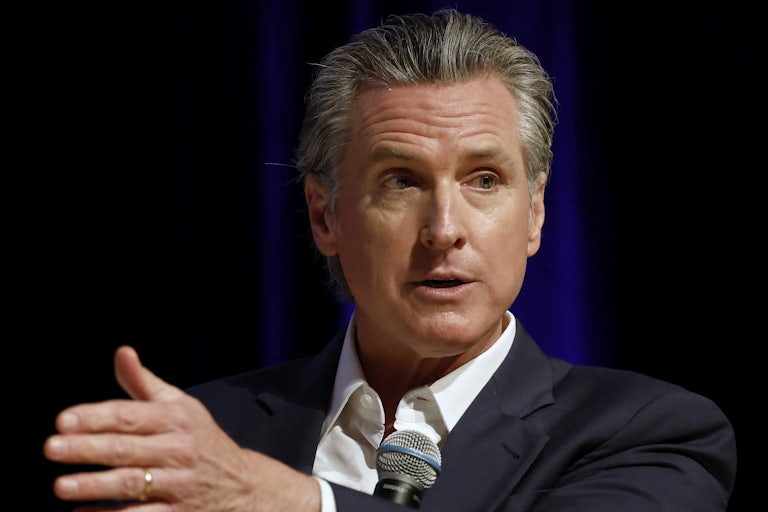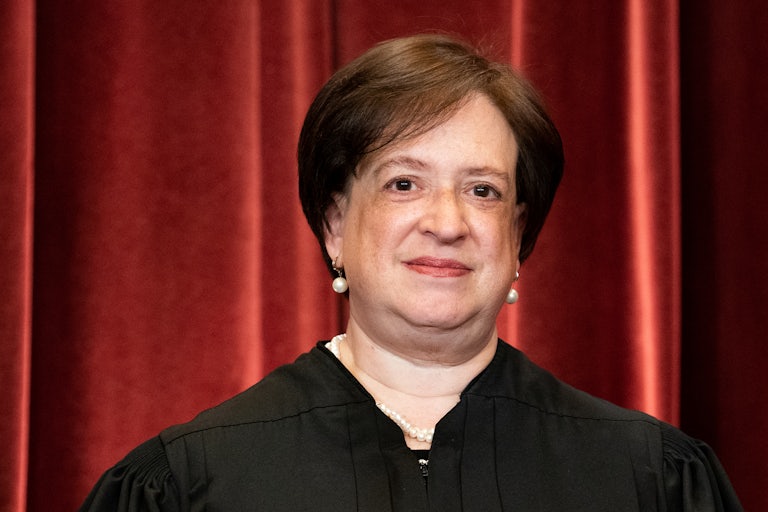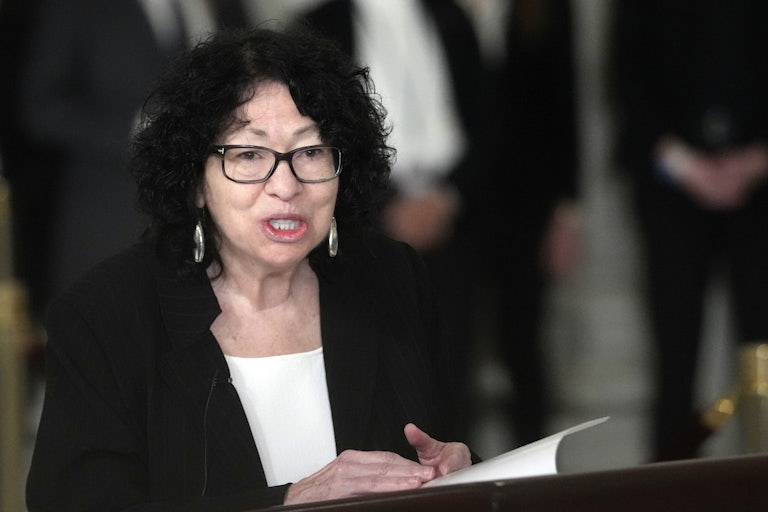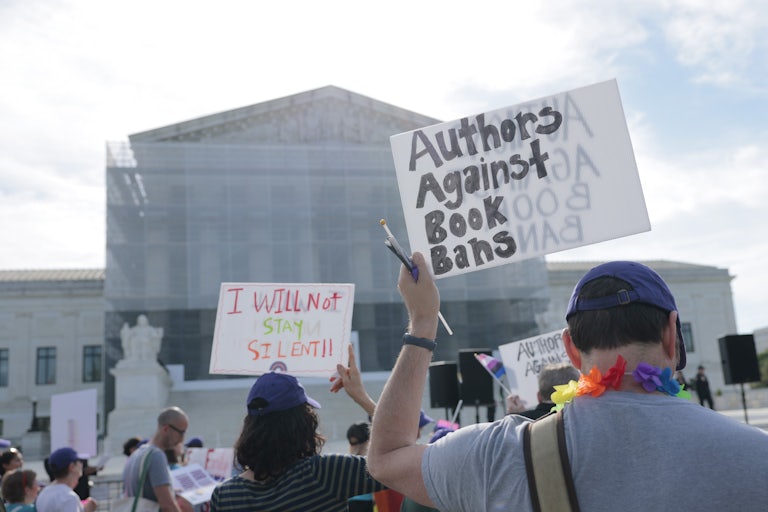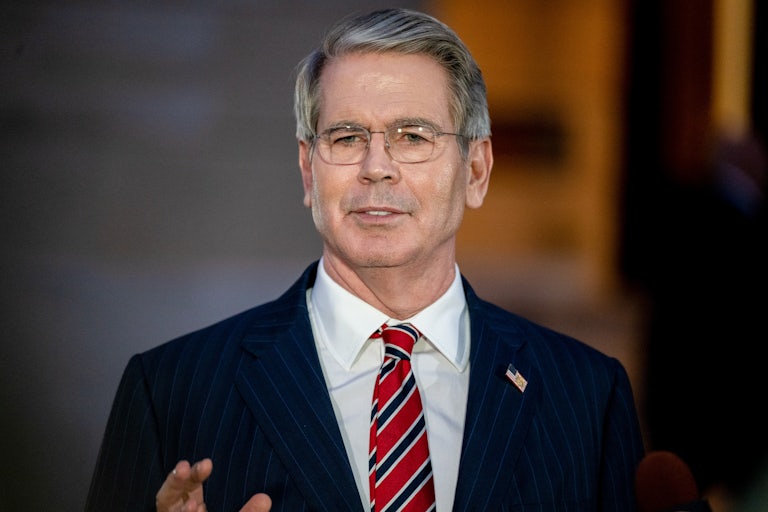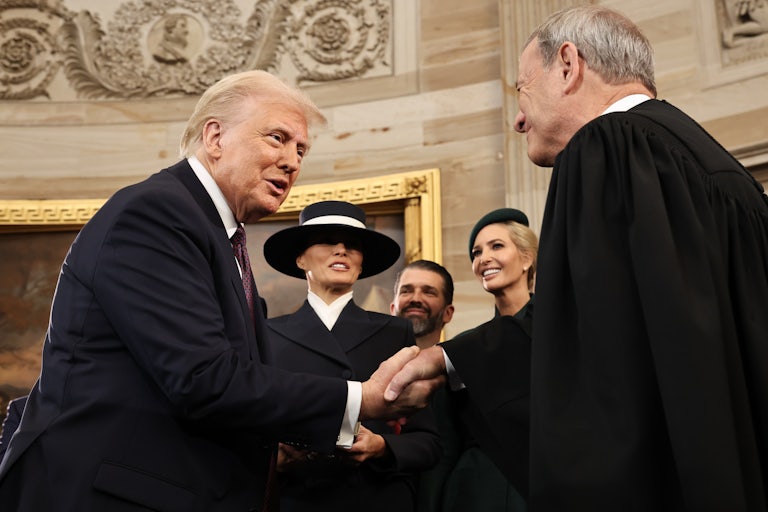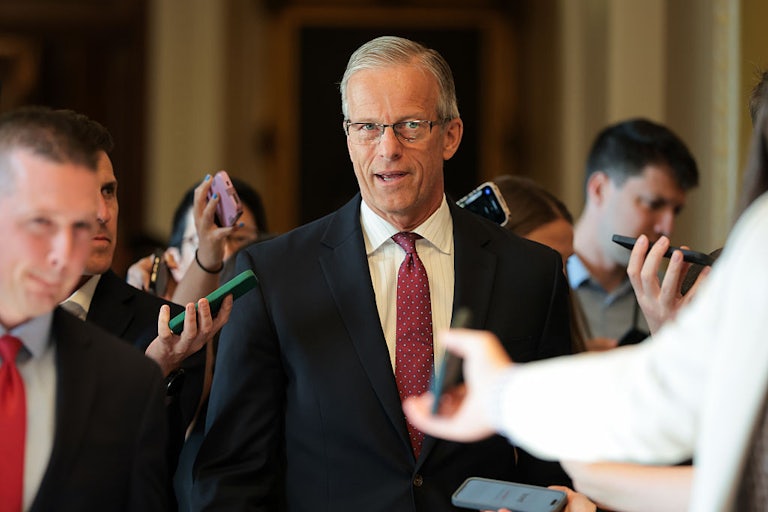Pam Bondi Struggles to Answer Key Question on Birthright Citizenship
Donald Trump’s attorney general struggled to explain the new rules on birthright citizenship after the Supreme Court ruling.
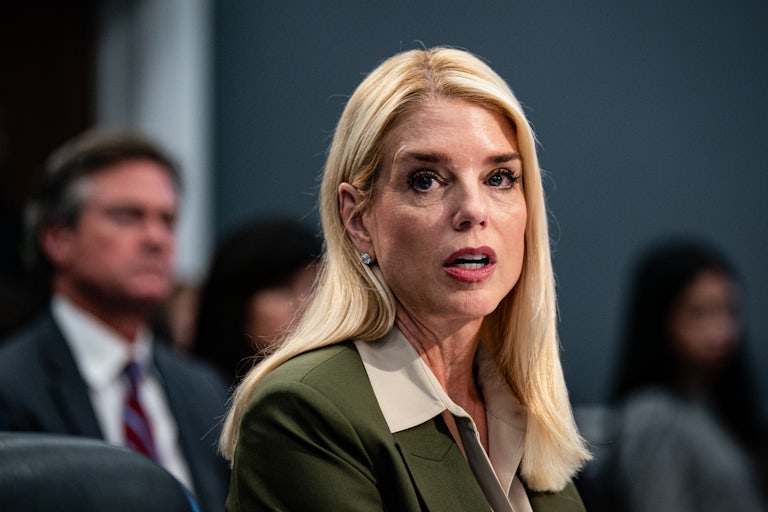
In a 6–3 ruling, the Supreme Court on Friday restricted lower courts’ nationwide pauses on Trump’s birthright citizenship executive order, though it did not rule on the merits of the order itself.
Now, thanks to the court’s conservative supermajority, the undecidedly unconstitutional order may go into effect, in at least some states, come next month—a prospect that has left many wondering how the Trump administration would enforce it.
During a Trump press conference celebrating the ruling, Attorney General Pam Bondi was asked for some details on that matter but failed to clarify anything.
“Who would be tasked with actually vetting citizenship [under Trump’s policy]?” a reporter asked the attorney general. “Like, would this be a situation where you have nurses and doctors checking for citizenship of parents?”
Bondi offered a nonanswer, citing “pending litigation” and promising answers in October, when, she said, the Supreme Court will decide on the constitutionality of the executive order. (The Supreme Court has not yet agreed to hear another birthright citizenship case or announced its argument schedule for the fall.)
The reporter followed up, asking whether undocumented babies would “be an enforcement priority.”
Growing steely, Bondi replied, “The violent criminals in our country are the priority now.” That answer runs counter to ICE’s own records that, according to the Cato Institute, show the government is “primarily detaining individuals with no criminal convictions,” and that even deportees with convictions are “overwhelmingly” not violent offenders.
Nonetheless, Bondi continued: “But you should all feel safer now that President Trump can deport all of these gangs, and not one district court judge could think they’re an emperor over this administration.” But are we really “safer” now that the courts’ ability to rein in Trump’s lawless orders has been significantly diminished?
